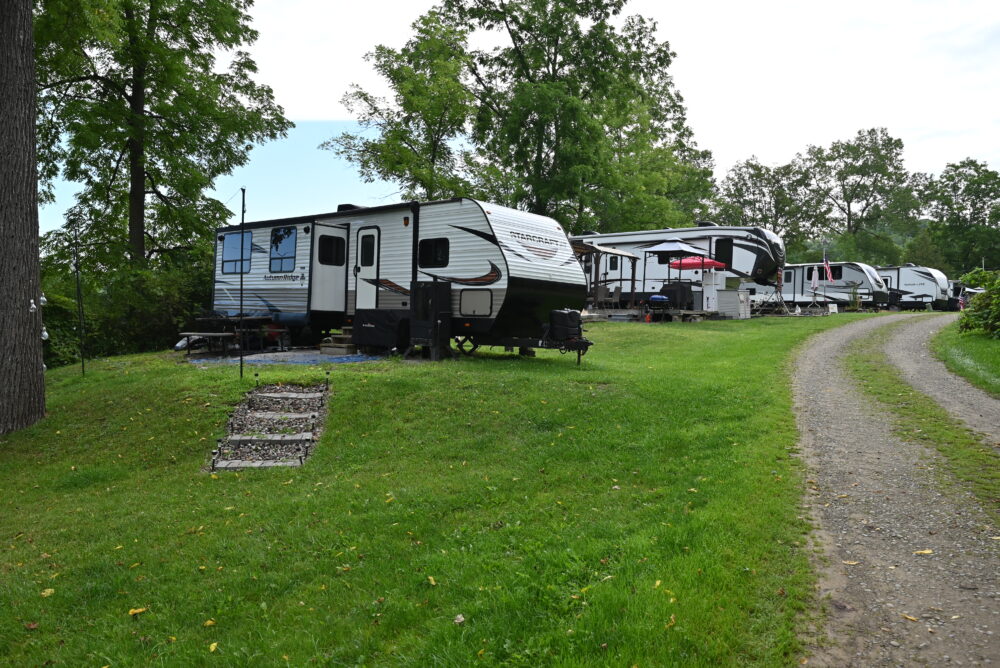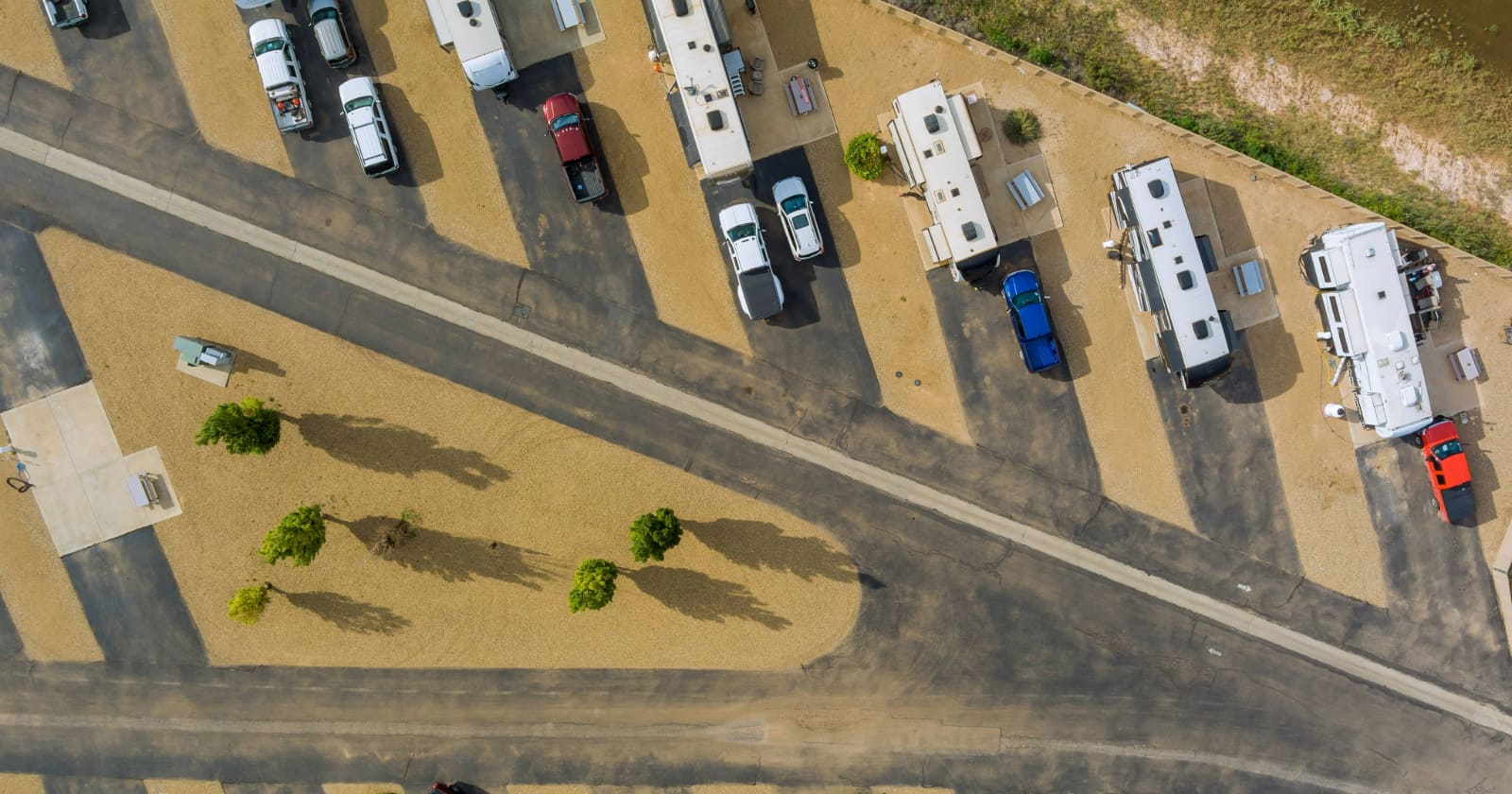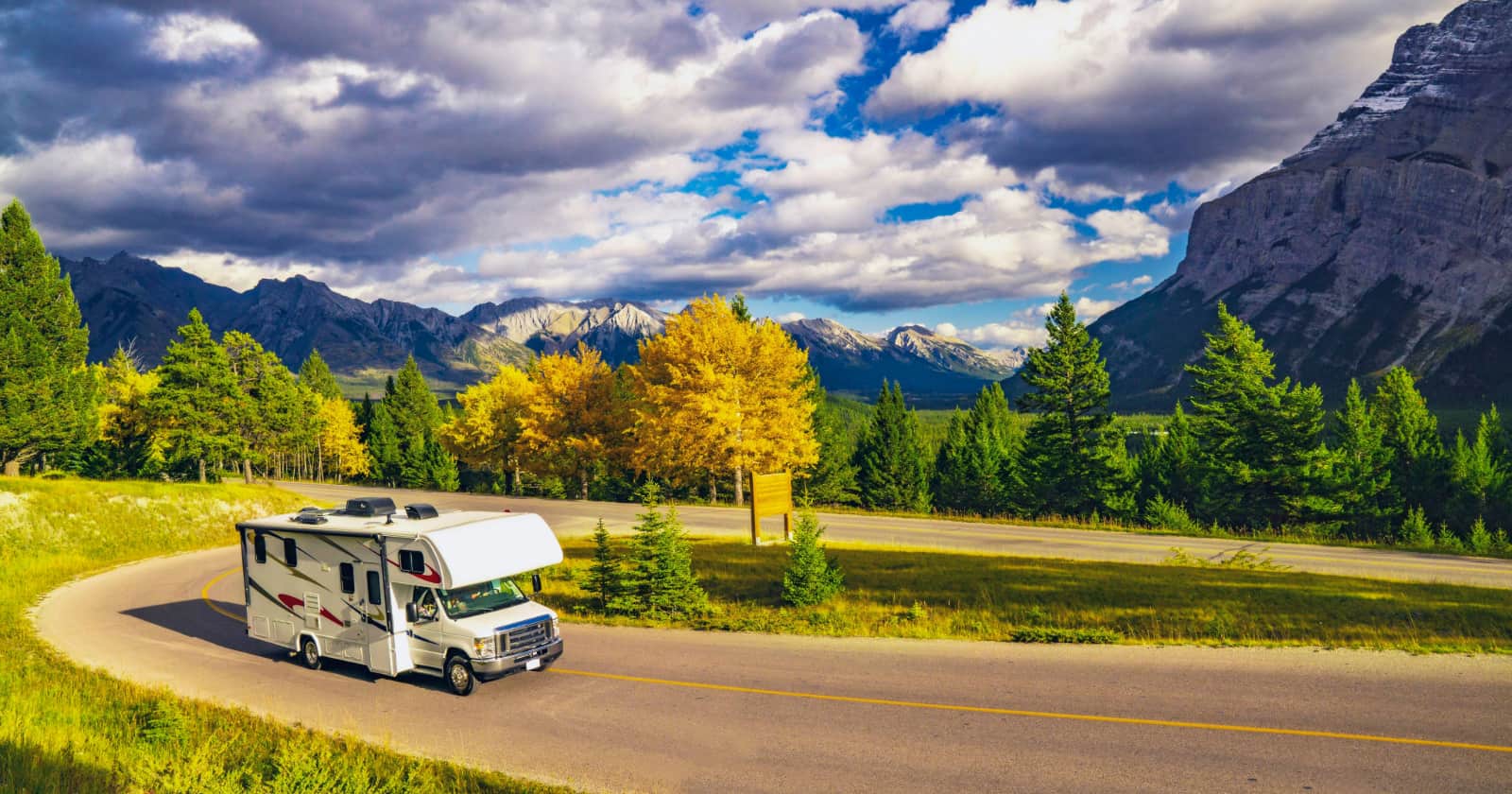
WHY FULL-TIME RVING CAN BE MORE AFFORDABLE THAN YOU THINK
You might think I’m biased in saying it’s cheaper to full-time RV since that’s the life I’ve chosen. But my years of experience as a full-timer present some compelling numbers. Here’s a quick overview of monthly expenses compared to my many years of living in a traditional brick-and-mortar home.
List out your monthly expenses
Start by listing your monthly expenses. While I can provide a general comparison, it’s essential to recognize that individual lifestyles will introduce exceptions. Whether you’re transitioning from a brick-and-mortar or a similar RV, lifestyle plays a significant role.
RV to House Monthly Expenses
Comparison Chart
| Item | Monthly expenses (Brick-and-Mortar) | Monthly RV expenses |
|---|---|---|
| Rent/Loan Payment (15 years) | $1800 | $575 (Truck – $600) |
| Taxes/insurance | $415 | $165 (Truck – $100) |
| Tires/fuel | $175 | $275 |
| Water/electric/sewer | $300 | $400 (includes RV site) |
| Internet/Cellular hotspots | $100 | $150 |
| Upgrades | $150 | $150 |
| Repairs | $150 | $150 |
| Total (Average) | $3090 | $2565 |
Rent vs. taxes
For my spouse and I, our fifth wheel and truck cost about the same as our house. Selling our home allowed us to pay off both the RV and truck, eliminating monthly payments. Factors such as monthly rent, loan payments, and length of loan notes will affect your calculations.
We control fuel and tire costs by traveling only a couple of days each month, avoiding frequent relocations. Typically, our utilities are included in the campground fee because we opt for monthly stays, negating the need for a separate utility payment. On average, we spend around $400 per month on these combined expenses.
Tire and fuel considerations
Although not typical for brick-and-mortar homeowners, RVers need to account for tire and fuel expenses. Depending on your RV setup, you might also need to include your vehicle costs. Our truck is crucial for our full-time RVing, but if you’re using your existing vehicle, you might not have to factor it in unless your usage changes.
Internet expenses in RV life
Staying connected is a significant cost for us, but it might not be the same for everyone. Our full-time jobs demand reliable internet, so we invest in multiple cell phone chips, boosters, servers, and backup services.
Without these job requirements, one could possibly rely on the local RV park Wi-Fi or a single cell service provider. There’s an initial setup cost to consider, which might be higher than what you’d spend on a traditional home setup.
Upgrades and repairs
Repair and upgrade costs have been similar for us, whether in an RV or a traditional home. While you won’t have expenses like air conditioner repairs or roof replacements in an RV, other maintenance costs will arise. Anticipating these expenses and using your current budget as a reference can prepare you for full-time RVing.
Remember: full-time RVing isn’t a vacation
It’s crucial to remember that transitioning to full-time RVing doesn’t mean you’re perpetually on vacation. Sure, you’ll explore new places, but it’s essential to manage these excursions within your budget. Overindulging in eating out or frequent sightseeing can quickly overrun your budget.
The flexibility to control your RV expenses
A significant advantage of full-time RVing is the ability to control your monthly expenses, something less feasible in a stationary home. With an RV:
- You can choose a more affordable RV park.
- Monthly stays or RV memberships often give you discounted rates.
- Staying for extended periods can mean inclusive utilities.
- Traveling less frequently reduces fuel and tire costs.
- Boondocking can minimize most monthly expenses.
Making the right decision for you
While finances play a crucial role in the decision to transition to full-time RVing, it shouldn’t be the only consideration. It’s essential to find a balance between managing expenses and ensuring a fulfilling quality of life. After all, life’s too short to miss out on wonderful experiences.
Get tips from other RVers
One of the best parts about RVing is engaging with the community of traveling enthusiasts. iRV2 forums allow folks to chat with other RVers online, and get other perspectives on everything RVing, including products, destinations, RV mods, and more.




You can’t RV forever, so without saving for an exit plan, you are missing one major expense. So you must be making a house payment, regardless if you are RVing or not. Otherwise when you can no longer RV, you will be sleeping on a sidewalk some place.
There’s an old accounting saying “figures lie and liars figure”. The numbers are so far off, maybe I will see Pluto when looking. I see no maintenance, the repair numbers are weak, almost all other numbers are not even reasonably representative of “real life” today. I could go on, but suffice to say, this “expert” is off base and providing bad info. There is so much missing from both sides of the equation, the article should be removed….
The whole monthly pitch/utilities thing seems backwards. If you pay the day rate, utilities are included, but if you go monthly (lower rent cost) there is an add-on for electricity, and those rates can be higher than residential rates. I don’t think there is a one-size-fits-all answer to this question: as with everything else, you’d need to research costs based on your own particular position. Also, should you add a cost of visiting the places you full-time at to your “home-own” costs? One of the major benefits of full-timing is getting to see new places. Given, it’s cheaper to drive two people in an efficient vehicle than towing or driving a motorhome, but if you want to spend time in new places, I think full-timing wins hands-down in terms of cost.
EVERYTHING IN THIS TOPIC / SURVEY SEEMS TO FOCUS TOWARDS THE RV… BUT… APPRECIATION VS. DEPRECIATION. VALUE OF THE RV VS. VALUE OF THE HOUSE.
WHEN YOU’RE YOUNG EVERYTHING IS EASIER, BUT, WHEN YOUR HEALTH FAILS, YOU GET OLDER, YOUR BODY CANNOT TAKE IT ANYMORE. THE HOUSE SEEMS MORE AFFORDABLE.
WEAR AND TARE ON THE RV DEPRECIATES THE VALUE, NO MATTER HOW MUCH YOU KEEP WITH THE REPAIRS.
Don’t forget your RV depreciates while your house appreciates! Long term this is significant!!
Two things:
That fuel cost could only be for a stationary RVer, not one traveling around the country. We did it for six years and never had one month with that low if a fuel cost.
Secondly, you can’t really compare a mortgage to an RV loan. A home is an appreciating asset and before this year mortgage rates were much lower than RV loan rates. As you pay off your home, you are increasing your net worth. An RV is a depreciating asset and with a 15 year loan, you’re going to owe more than the RV is worth very quickly meaning your net worth will decrease even as you work to pay off the loan.
This is only comparable with renting a home, as your RV depreciates and any real estate appreciates. You also lose the tax deduction of having a mortgage on your house. I am full time but I am not kidding myself about the cost differences.
One major factor not listed is the difference between depreciation on a truck and trailer vs the appreciation on a brick-in-mortar home. While appreciation is not always guaranteed, depreciation certainly is. I would guess that at some point everyone gives up the full-time mode and transitions to assisted living or some other permanent mode. Having to go from a depreciated RV to another mode will be more expensive than moving from an appreciated brick-in-mortar home.
An important consideration is that trucks and RVs generally depreciate, while depending on where you live houses increase in value — in some areas very dramatically. It can be the best investment in a person’s portfolio.
Hi. I am a homeowner in Florida. I think the monthly expenses you listed for a house are woefully underestimated. Taxes, insurance, utilities and upkeep these days is exorbitantly high. And if paying a mortgage that is even much more added to the bottom line. And then if making car payments and insurance,… whoa … it is crazy expensive. I think Rv living would be by far, much much less.
You assume either:
– the RV is owned (no payment to buy) and you are paying for an RV site…or
– the RV is being paid off (akin to a mortgage payment), in which case you forgot to include the RV site monthly rental fee.
Secondly, most RVs also rely on propane for hot water, cooking, and heat. That was not included either.